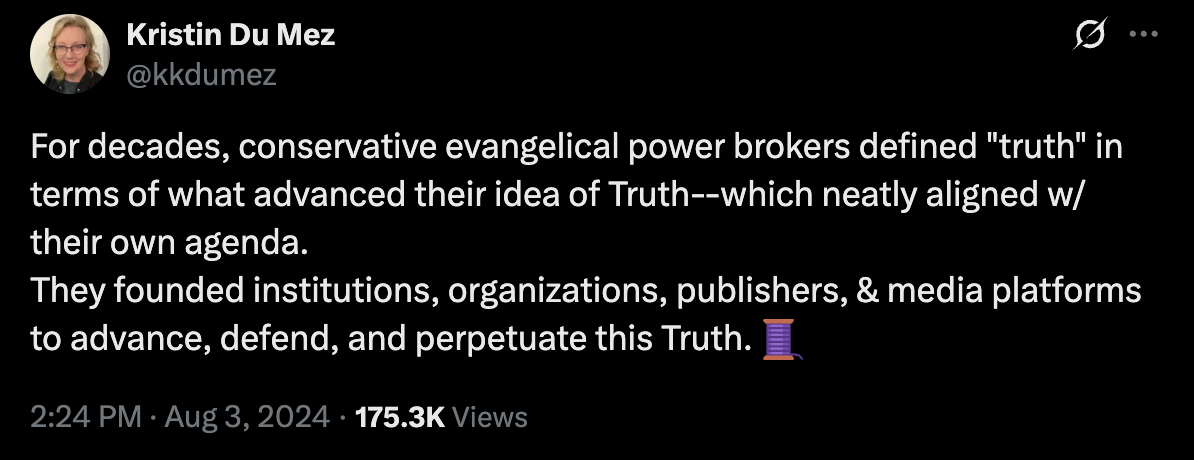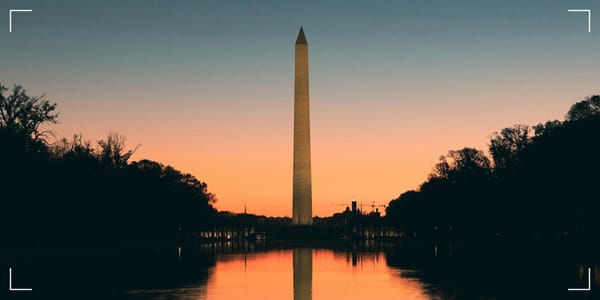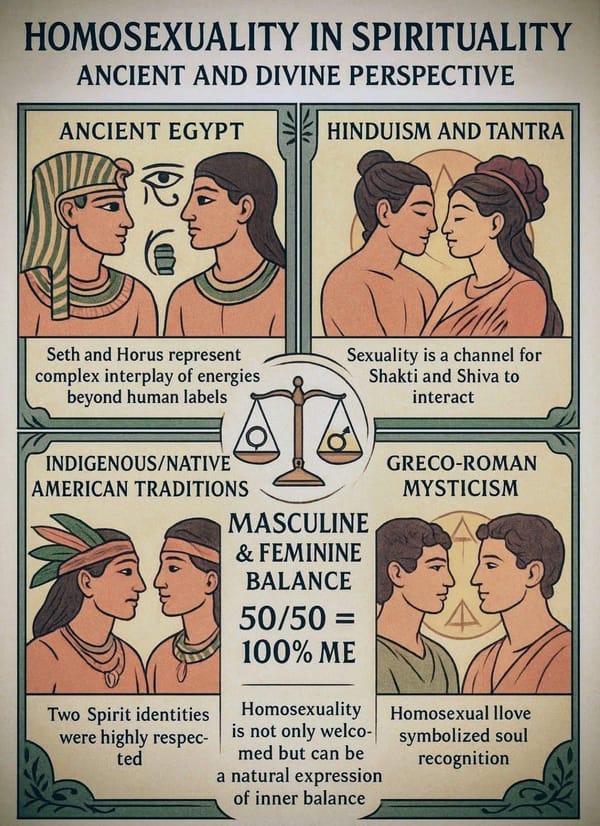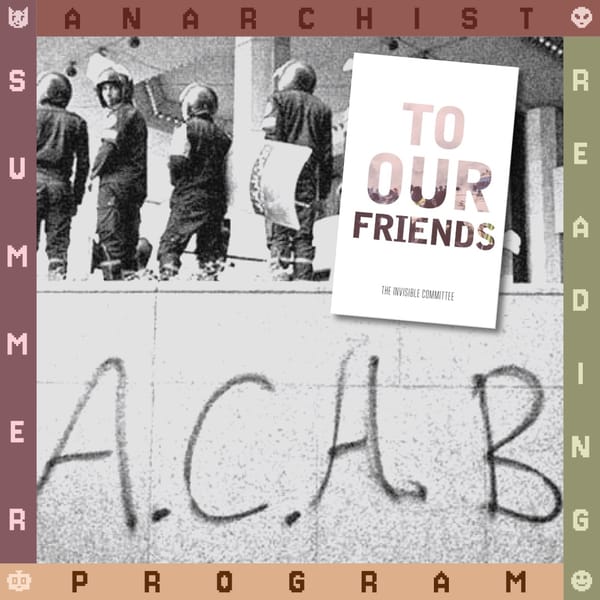The Washington Post famously documented 30,573 false or misleading claims by President Trump during his first term in office. At the time this was a dizzying number of lies by a sitting President, though now they look quaint in retrospect. Back then, he was "only" lying to construct a false image of himself.
Now, he's lying to justify turning the US military against some of the most defenseless people in the nation - its unhoused population - by lying about crime rates. But even this seems to be a cover lie for the barbaric desire to dominate US cities by federalizing police and using them for crimes against the people.

MSNBC fact checked him in real time by displaying the true crime statistics during his live press conference as he was lying about them on camera, surrounded by officials, white house insignia, and the US flag. It was a grotesque and jarring scene, juxtaposing unspeakable malevolence with symbols of freedom, justice, and credibility.
And if you've caught on to my framing here (which tracks with my personal view of the matter) you'll notice I'm accentuating something. I'm constructing a "truth" around narrative points chosen to support that truth, and in order to make my portrayal clear I've left out pieces of the story.
The Unveiling of Constructed Truth
If you were hearing this story in media favorable to Trump, you might hear about the attack on one of his agency staff members. Or that "lower" crime is still non-zero. Or purportedly similar policies enacted by other presidents. You would hear a differently-constructed "truth".
There's a long-standing philosophical debate about how much of our concept of truth is socially constructed. In recent years, who gets to decide what is true about gender has become a flashpoint in whether trans people get human rights. So what counts as true, and who decides, can change the course of human life.
Even concepts we hold as sacrosanct, like human rights, can be seen through the lens of social construction, though their impact is undeniably real. And even when we talk about things like gravity, which refer to observable realities, the equations are a construct of mathematics, and may not perfectly describe it.
Constructed truth shapes how we perceive the world by telling us what is important to measure, to observe, to calculate. If you only care about crime, you count things like trespassing against the unhoused. But if you care about suffering, you count how many people went to bed hungry, or slept in alleys, or took their own lives.
A well-known cliché states that history is written by the victors. But that doesn't just happen retrospectively, it happens in real time as we construct truth together. A recent thread by historian Kristen Du Mez shows how Christian Nationalists have weaponized this to serve their obsession with worldly power.

So I think we need to be aware that when Trump lies, he's not behaving like an ordinary criminal, sneaking around to cover his tracks. He knows he is on the world stage, surrounded by media outlets fact-checking him in real time, and he doesn't care.
Because he knows if they can get away with rewriting history as they go, they'll win - or at least, appear to.
When Foundations Crumble
It might be disturbing, perhaps frightening, to imagine that such awful people can lie their way to victory - and I admit the sense of foundation crumbling beneath us is a little disorienting. But I want to take some hope today from the archetype of The Tower, which speaks to the constructs we build our lives around.
The Tower isn't always as big as the global geopolitical nightmare we're living through now. It's often much smaller. Have you ever constructed a house of cards out of your own delusions, perhaps a relationship that fell apart, or a season of addiction you went through? Those are Tower moments.
The Tower represents how easily we can build up edifices that are unstable - both personal and collective. When our budget app warns us that we're over-extended; when the prophets warn the ancient Israelites that cruelty to widows and orphans will lead to downfall, they are warning of a Tower moment.
Societies exist for mutual well-being, and when they fail at this, they fail. Period.
The Dawn of Renewal
So while there is something true about the ability to construct a convincing façade, victors' histories are not a lasting truth. Notoriously, European colonizers depicted Indigenous societies as "primitive" to justify conquest - but studies of sites like Cahokia and Machu Picchu reveal complex societies that rival contemporary European cities.
And this is the other lesson of the Tower, for if you've ever been through an upheaval in your life - a painful breakup that led to addressing patterns of codependency; a career burnout that led you to something more personally fulfilling - you know that on the other side of that pain is a moment where you begin to hope again - the dawn of renewal.
A recent Reddit post dubbed "MAGA Dad" reveals a growing trend among Trump's supporters; there are many like it. Maybe you've seen some of the others - viral videos of working class, often white men, realizing too late that tariffs and budget cuts have a catastrophic impact on their jobs.
The takeaway is, or should be, that deeper universal truths (like gravity, or supply and demand) cannot be thwarted by human lies. No constructed truth can shield any of us from the consequences of policy rooted in cruelty, spite, and deliberately inflicted harm on the political "other". Sooner or later, the leopards will eat your face.
It's terrifying that we have to live through this. But a Tower moment is upon us, and it might be bigger than Trump. Capitalism is built on lies prevalent since the enlightenment, and the United States is the poster child for the alleged victory of those lies. Are humans just isolated units of rational self-interest? Or does community count after all?
Wisdom from the Rubble
The beauty of a Tower experience, as dreadful and destabilizing as it can be, is that we get to reconstruct based on what we've learned when the dust settles. We've learned something about free speech and handing a megaphone to nazis. We've learned something about bigotry and the paradox of tolerance.
Those lessons matter, and they shape how responsibly we can use our autonomy in the future. They give us foresight and wisdom for crafting solutions, and they remind us that humility matters when we decide how confident we feel about the truths we construct to justify them.
Today's perfectly reasonable solutions are revealed for their flaws when the "truth" comes crumbling down in the long run. It's OK to make mistakes, and learn and grow and adapt. And we need to be realistic and honest with ourselves when that happens. We break historical cycles not merely by learning about them, but refusing to repeat them.
Personal Reflections
It's easy to feel overwhelmed by things that feel bigger than us. But socially constructed truths are a group project by definition, so while we can't change it all by ourselves, enough of us working together can add up to massive shifts in global consciousness. Here are some prompts for cultivating that shift.
Deconstruct Your Tower
- Reflect on a tower moment in your own life - any dramatic moment of collapse. What "truths" did you construct around that situation that ultimately proved unstable?
- What deeper, more universal truths emerged for you from that experience? How did the destruction clear space for something more authentic to grow?
Map Your Personal Truth
Since truth can be constructed to serve agendas, it's important to get clear about what we believe and why - mapping our personal "truth compass".
- What core values or principles guide your everyday choices?
- When faced with competing needs, how do you discern what resonates and aligns with the greater good?
- Consider a current societal issue. What narratives are being constructed around it, and what underlying interests do they serve?
- How can you, in your daily life, contribute to a narrative that prioritizes compassion and equity?
The Architect of Tomorrow
- If you were to consciously construct a social framework that would lead to a more just and flourishing future, what would be its foundational tenets?
- What would be "important to measure, to observe, to calculate" in this new framework?
- How can you begin to embody this "truth" in your own actions, words, and choices?
Wielding Discernment Toward Mutual Wellness
- How can you set meaningful boundaries to preserve your energy and uphold justice and mercy without perpetuating the cruelty of exclusion and otherization?






